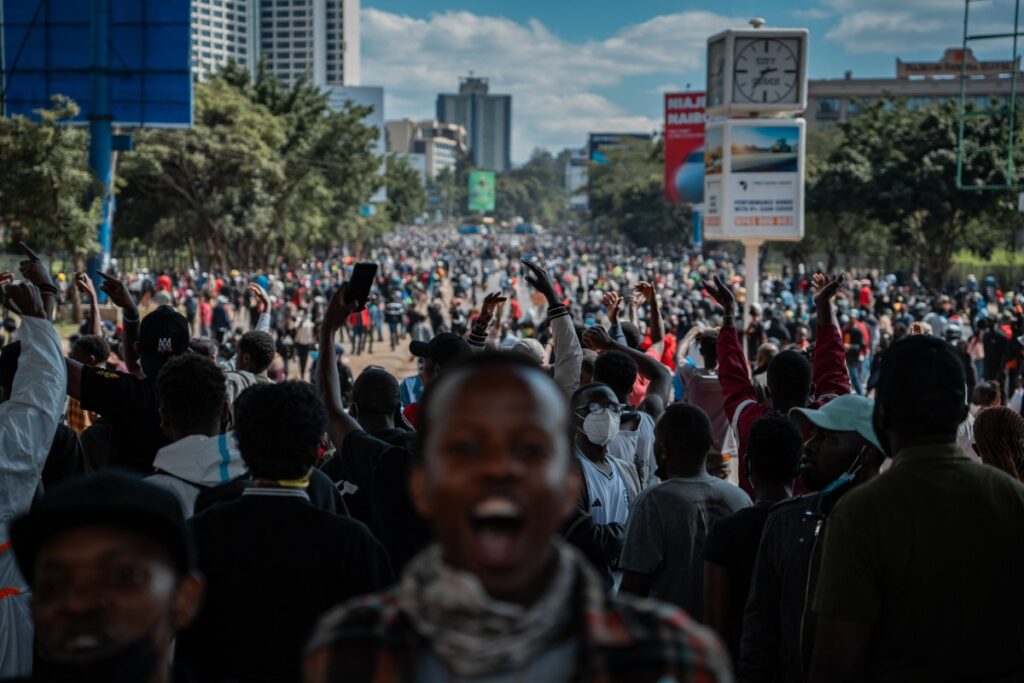
While it is true that the detestable act has its root in primordial settings, I think a blanket disavowal of the indigenous past is a convenient detour that shifts attention from understanding the problem at hand and distracts proactive measures to stem the savagery.
To turn the narrative right side up, this piece will contextualise ‘money ritual’ in African traditional practices, explore how modernity has sucked lazy and desperately greedy youths into the outdated practice and highlight collective efforts to contain the menace before it consumes us all.
Traditionally, there are a lot of myths around wealth creation. And to a large extent, evidence abounds that money could be extra-logically acquired through the deft manipulation of metaphysical forces in nature, by members of the esoteric community that have been trained in the know-how.
For instance, there is a phenomenon called aworo (i.e. customer appeal remote control) that is still believed to draw large patronage to a trader in the marketplace. Aje (wealth) or Aje-salu ga (an epithet of the god of wealth and luck) also has its place in the mythical ecosystem and is believed to answer those who can summon it.
Those conversant with the theory hierarchy of forces in African cosmology would recall that human beings generally occupy a significant place among the myriad of malevolent and benevolent forces that populate the universe.
Man is a force that can manipulate or be manipulated by higher forces, it is not difficult to see how human beings could sacrifice selves (i.e. organs) or others for sudden wealth purposes. And going that far poses the problem.
It is important to note that the same traditional practice expressly frowns at human sacrifices generally, especially in the greedy pursuit of wealth. For instance, Ifa literary corpus made it clear that: “A fi tipa-tipa lowo won kii kadun. A fi wara-wara l’owo bi Olokun won kii d’ola. A mo, ‘b’o pe, b’o ya un o l’owo’ iyen mbe l’aba ti n je esun-isu. Ojo esan o lo titi ni ko je k’oro o dun’ni…” (He that is anxious to get rich quick will die quickly. Those desperate to be as wealthy as the river goddess will not see tomorrow. But ‘sooner or later, I will be rich’ is in the hut eating roasted yam with contentment. No one should be flustered (by the prosperity of the wicked) because their day of reckoning will come…).
Inherent in the foregoing is that African forefathers, before the coming of Western colonial interlopers and modern sciences, had researched nature and made discoveries for pragmatic purposes. Money ritual, among others, was an intellectual mechanism (for the initiated) to control forces in the scheme of things. But its extreme barbarism of lowering human beings for money rituals is flatly condemned by society and the perpetrators severely punished.
Most disturbing in contemporary times is that the age-long machination, especially the unacceptable variant of it, has found its way into the hands of a poorly educated army of Nigerian youth. Because modern education has literally failed in its remit in Nigeria, there is this burgeoning group of youths, mostly before 20s and 30s, that have resigned to the notion of ‘school is a scam’. They have settled for the worldview of wealth without hard work or sound knowledge. Don’t blame them; they are the social media generation that has been watching too much of base content in movies and dancing to lewd lyrics of the entertainment industry. They daily see all manner of characters flaunt the ostentatious lifestyle of the super-rich without any known or commensurate means of livelihood. To them, the most important thing in life is wealth; ‘get it or die trying’!
For some years, internet fraud has appeared to be the most lucrative. Today, it is the age-long money ritual myths that have turned out to be most appealing. On one hand are internet fraudsters that would stop at nothing, including human sacrifice, to fortify their ‘hustle’ from the prying eyes of law enforcement agencies. On the other hand, is the ‘Zazoo Zeh generation’ of illiterates that is merchandising human parts to the very powerful and power grubbers in the society. And to connect greedy materialism with primitive myths are the misleading cult of charlatans and marabouts that are advertising all sorts of old-fashioned fetish garbage on Facebook, Instagram, Tiktok and other platforms just to suck in wayward youths. These so-called modern herbalists are gaining large followings of lazy wrongheaded Nigerians, far more than education or good governance has ever done, by offering them utopian promises of wealth without work or consequences!
As a matter of fact, ours is a country in a complete mess. In the midst of socio-economic and security crises ripping nationhood apart, if a fraction of over 33 million Nigerians on social media sites could still be compelled to obscurantist nonsense at the behest of scientifically ignorant ritualists in the 21st Century, then a tolerable future of Nigeria is far-flung.
Curiously, the country is yet unaware of the looming disaster or its leaders are too jaded to be bothered by the ugly spike in ritual killings to immediately declare a state of emergency in education and civic reorientation. One would have expected a serious country to be asking itself: where has family values and good parenting gone? Where are those objectives of religious organisations that lace our streets with mega churches and mosques? Where are their moral teachings, moral rebirth and our role models in cassocks? Where are the genuine traditionalists that are abreast of the consequence of ritual killings and dare not travel the route nor encourage the public to venture? Where are the monarchs, the representatives of the gods; the custodian of customs and traditions? Could crimes of such magnitudes be perpetrated in their domain without their knowledge? On the part of the government, where is the National Orientation Agency (NOA)? What of the National Agency for Ethics and Value Compliance (NEVACO) that the Senate passed its bill in July 2018? Where is the country itself headed – backwards in a world miles ahead?
There is enough blame to go round. However, the act is criminal in its entirety and should be condemned by all. The State authorities have an urgent tricky task to push back forcefully to snap the whirlwind of this shitstorm of barbarism. Agent provocateur of money ritual killings on social media, their money-bag beneficiaries and advertisers of wealth without work should be severely dealt with for deterrence. The traditional ruler that records such practice in his domain should also not be spared of culpable negligence and duly sanctioned by the State. If the so-called monarchs have no control over the state of affairs in their domain, then they have no reason to remain on the stool.
Indeed, there is nothing wrong with being rich to live well and comfortably. The problem is the greed of situating money as the sole object of its own enterprise. Ideally, the only sustainable modern money ‘ritual’ is knowledge and smart hard work to meet societal needs. That is what got today’s world-richest to the peak of fame. Service to humanity, not the buffoonery of the best-forgotten past. If it were not so, herbalists should be on Forbes’ rating of the world richest. Nigeria has enormous challenges that are waiting for a solution from clear-headed and well-educated citizens. The country already has a handful of youths playing in that space. It is the turn of those lazy juveniles to fall in line, make good use of their talents and amass legitimate wealth. If your forefathers, without formal education, could deploy their native intelligence to manipulate forces to serve primordial needs, you are a modern failure regurgitating their infelicitous past. Times have changed and the ship has long changed course. Nigerian youths think! Ire o!













